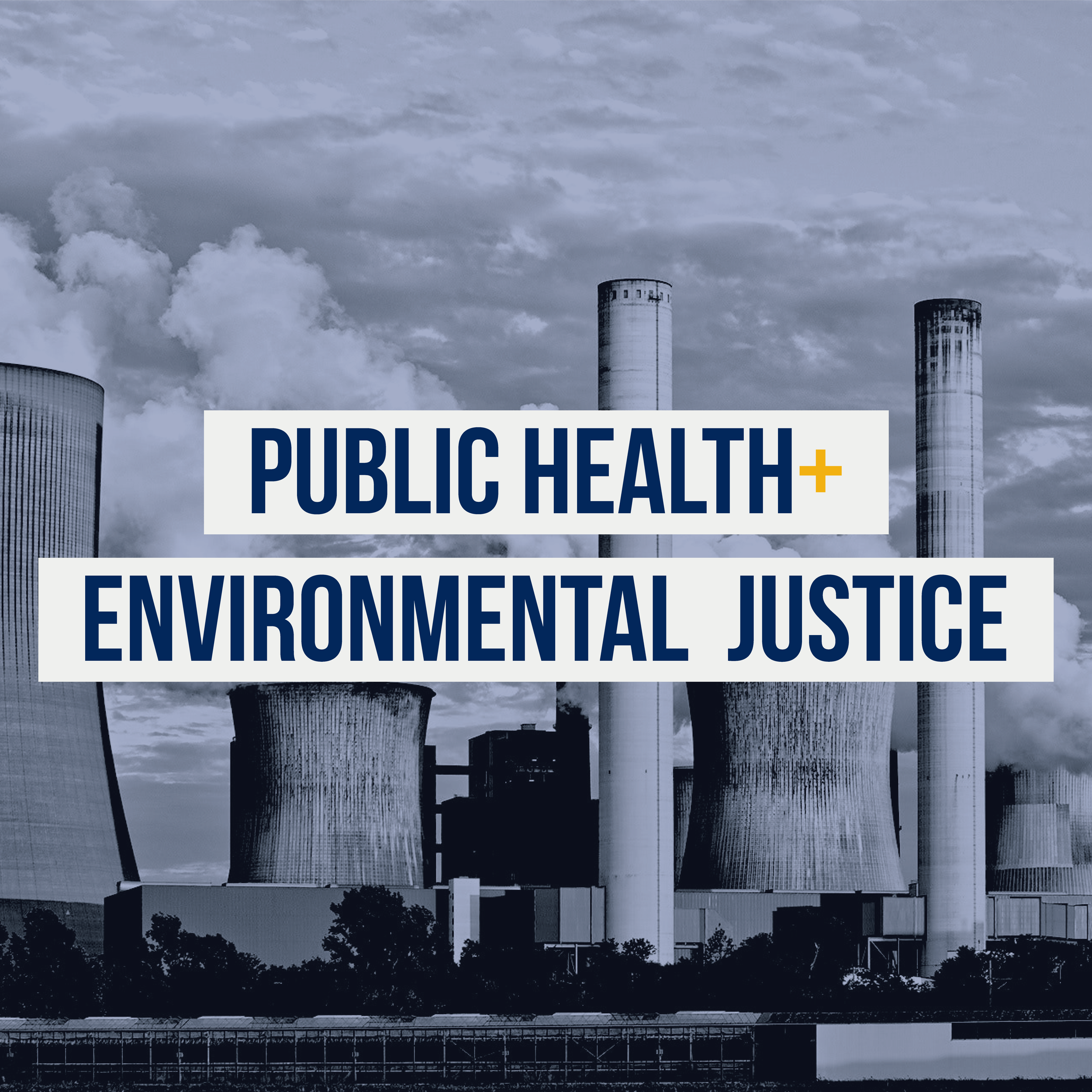Orange Sparkle Ball in collaboration with Rollins School of Public Health at Emory University hosted another installment of the Public Health + Webinar series about the intersection of public health and environmental justice.
We had the opportunity to tune into an insightful conversation with Dr. Natasha DeJarnett, Ph.D., MPH, University of Louisville and Sophie Becker, Design Strategist, Orange Sparkle Ball.
Natasha is an incredible advocate for environmental justice who has worked as a Policy Analyst in Environmental Health with the American Public Health Association and acted as Interim Association Director at the National Environmental Health Association.
THE WHY
As a child of the Great Migration, Natasha spent much of her childhood away from her home in Kentucky visiting her extended family in Birmingham, Alabama. It was on these trips that she noticed her well-controlled asthma would often flare up. Later, as a graduate student, she had the opportunity to conduct a needs assessment in any community she desired and picked her parents home in North Birmingham. Through this, Natasha discovered that not only were there numerous hazardous facilities in the area but health disparities such as low birth weight and chronic diseases were pervasive. What struck her most was the community where her family was raised, “still face health impacts because of environmental injustices that have persisted over decades.” This is how Natasha found her passion for merging environmental health and justice which is still the forefront of her work to this day.
“At the time, I said this is my call, to be a voice for the voiceless… I don’t feel that way right now. Currently, I feel that I have opportunities to ensure that there is a seat at the table for the...traditionally voiceless, to be able to raise their concerns and stand in their own expertise, their lived experiences.”
THE NOW
Dr. DeJarnett has observed a parallel between the way the global pandemic and environmental emergencies driven by climate change, such as forest fires and hurricanes, have exposed and exacerbated injustices and health disparities in historically underserved communities. Concurrently, the Black Lives Matter movement has prompted awareness regarding issues surrounding injustice in every aspect of the nation.
While previously there has often been a burden on Black, Indigenous, and People of Color (BIPOC) to bring issues surrounding injustice to the table, Natasha has felt that as of recent there have been more people other than BIPOC that are speaking up on how certain decisions may affect historically oppressed populations.
Natasha feels that this shift in the dialogue has the potential to lead to more change. However, she believes that the way we view injustice in the context of climate change still requires a shift in thinking.
“We need to shift understanding.... that we’re all at risk to the health threats of climate change, but that there are some populations and some communities that are more at risk and have been for quite a while.”
Dr. DeJarnett shared with us a great analogy for thinking about how climate change disproportionately affects certain communities. In the words of Peterson Toscano, host of Citizen’s Climate Radio, “we’re all on the same boat, but we are not on the same deck.”
THE FUTURE
With an issue as pressing as climate change, messaging is critical to establishing a sense of urgency. Natasha gave us a great perspective on how messaging surrounding climate change must change for the future. I will be the first to admit that polar bears are top of mind when I think of climate change, but she rightly believes we must shift away from this to a more humanistic approach.
“I think we have missed the mark in making the polar bear… the face of climate change because it affects human health as well… I think our children, the next generation, my grandma, other people that are uniquely burdened by climate change… that needs to be the face of climate change and the face that motivates us to act.”
Dr. DeJarnett believes that the best way to ultimately deliver this message really is “know your audience,” but regardless of the audience an essential element is storytelling. Storytelling is key to establishing a connection with the audience and bringing them into the dialogue.
One great example of storytelling that Natasha uses is the Green Heart Study in Louisville, Kentucky, which aims to plant trees for healthier air. With Louisville’s air quality ranking among the worst in Kentucky, the study aims to discover if planting trees relates to positive cardiovascular health outcomes. Dr. DeJarnett strongly believes that it is vital to highlight success stories when discussing environmental health since so often people feel overwhelmed by the issue. The Green Heart Study is an exemplary example of a success story as it is a tangible goal that other cities can adopt and ultimately share in the success that Louisville has experienced.
While we certainly can enjoy these successes, there is still a lot of work to be done surrounding environmental justice and climate change. Natasha emphasized this key message:
“If we ignore health disparities, or we don’t take account for health disparities, that does not mean that they go away, and they may be further exacerbated.”
Get involved in environmental justice efforts today. “It is our responsibility to the next generation to leave them a future where they can grow healthy and thrive.” Find opportunities here:
NAACP Climate Justice Resources
To view previous and upcoming installments in the Public Health + Series click here.
Written by Liris Stephanie Berra, Public Health Innovation Analyst
Liris is a Master of Public Health student at Rollins School of Public Health, Emory University. She is part of the Global Health department, pursuing a concentration in Community Health Development and a certificate in the Social Determinants of Health.








